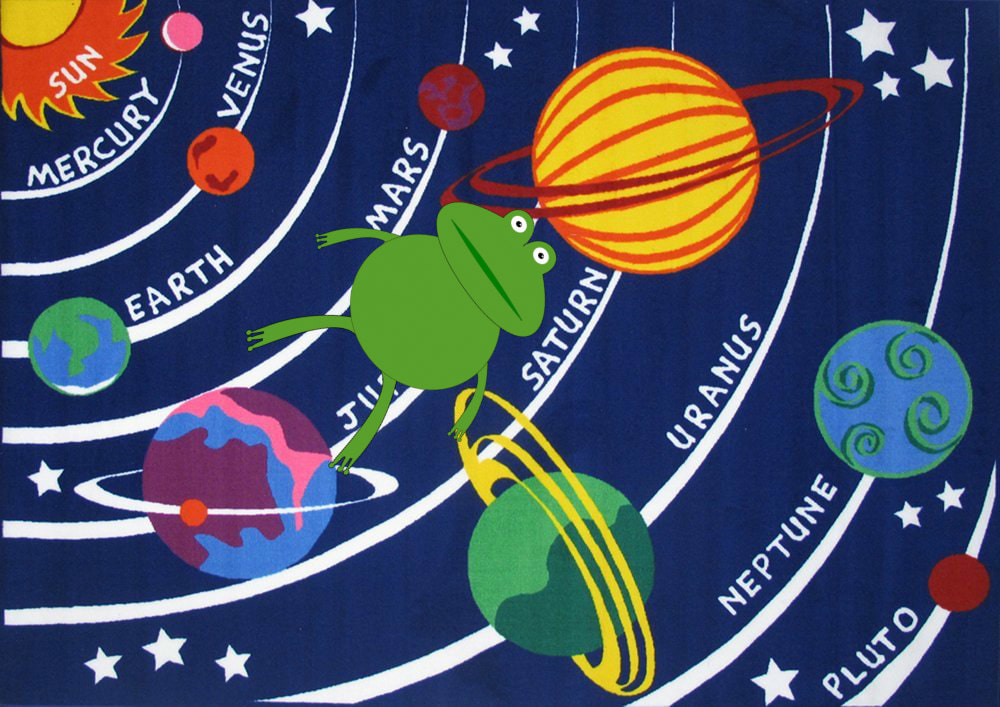The length of a day depends, of course, is based n the time needed for the astrological body to make one complete turn on its axis. The moon, for example, takes 29. 5 days to make one full rotation. This means that any future inhabitants on the Moon will have to adjust to 14 straight days of sunlight and nights that last for a similar length of time.
Here's a rundown on other planets.
Mercury - It takes 58.6 days for this planet to make a complete spin. That may seem like a long time but consider that their year is only 88 days long. That's because it orbits very close to the sun. But here's a twist. "Mercury is gravitationally locked with the Sun in such a way that it rotates three times on its axis for every two times it goes around the Sun. If people could live on Mercury, they'd experience one full day (sunrise to sunrise) every two Mercurian years."
Venus - Venus spins very slowly, taking 243 Earth days to complete a rotation. Because Venus is closer to the sun than Earth, the planet has a 225-day year. This means their day is actually longer than a year. Residents, if there were any, would get only two sunrises per year. " One more fact to remember: Venus spins "backward" on its axis compared to Earth, which means those two yearly sunrises take place in the west and sunsets occur in the east."
Mars - A day on Mars lasts 24 hours and 37 minutes making it very close to an Earth day. This is part of the reason that mars is thought of a kind of Earth twin. "Because Mars is farther than Earth from the Sun, however, its year is longer than Earth's at 687 Earth days." This could be very nice when it comes to celebrating birthdays. Everyone on Earth would be only 1/2 as old on Mars. But not so great when looking forward to your annual vacation or raise.
Jupiter - Figuring out the length of a day on Jupiter isn't easy. "On the gas giant planet, Jupiter the equatorial region of the cloud belts rotates at a rate of 9 hours and 56 minutes, while the poles rotate quite a bit faster, at 9 hours and 50 minutes. The 'canonical' (that is, commonly accepted) day length on Jupiter is determined by the rotation rate of its magnetic field, which is 9 hours 55 minutes long. If you worked on Jupiter, you'd probably need to ask for a longer lunch hour....
Saturn - Based on measurements of various parts of gas giant Saturn, planetary scientists have calculated that the official length of Saturn's day is 10 hours and 33 minutes.
Uranus - This place is a weird world. The most unusual characteristic of Uranus is that it's tipped over on its side and "rolls" around the sun laying on it's side. I mean, how lazy can you get! This means, though that either one axis or the other is pointed at the sun during its 84-yr-long orbit. Uranus does turn on its axis once every 17 hours and 14 minutes. "The length of day and the length of the Uranian year, along with the weird tilt of its axis, all combine to that planet a day that lasts about as long as one season here on Earth.
Neptune - This gas giant planet has a day that's roughly 15 hours long. it took scientists several years to calculate the rotation rate of this gas giant. "They accomplished the task by studying images of the planet as features rotated around in its atmosphere. No spacecraft has visited Neptune since Voyager 2 in 1989, so Neptune's day must be studied from the ground." And last but not least,
Pluto - The little "dwarf" planet Pluto has the longest year of any known planet, lasting for 248 years. Their day is shorter but still longer than the one we experience here. Each day lasts for six Earth days plus 9.5 hours. Pluto is tipped to its side at an angle of 122 degrees with respect to the Sun. As a result, during part of its year, portions of Pluto's surface enjoy either continuous sunlight or bathed in continues night-time.
I don't know about you, but looking at these astronomical facts has made me appreciate Earth a whole lot more. And can you even begin to imagine what jet lag would be like on some of these planets???? Yikes!
I hope you'll join me back here tomorrow when my beloved friend and wise teacher, the Dharma Frog will be here for my weekly life lesson.
Peace.

 RSS Feed
RSS Feed